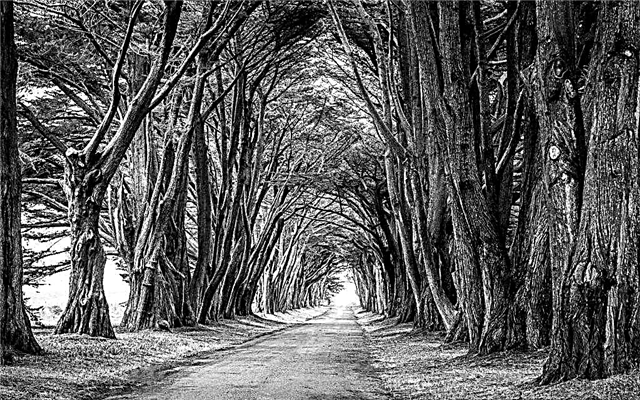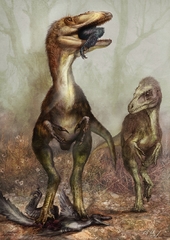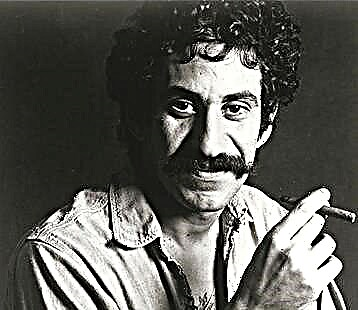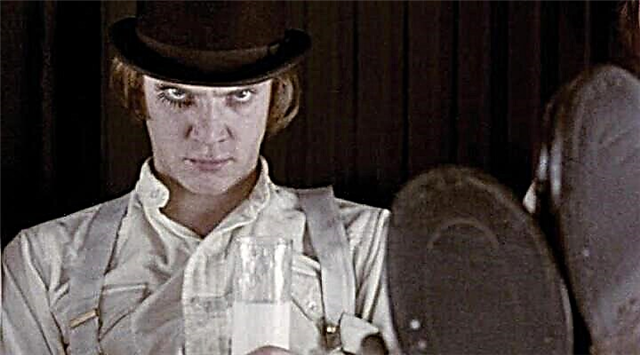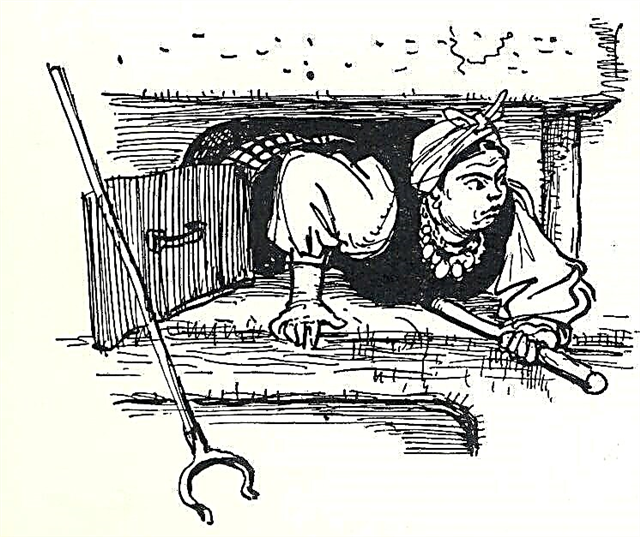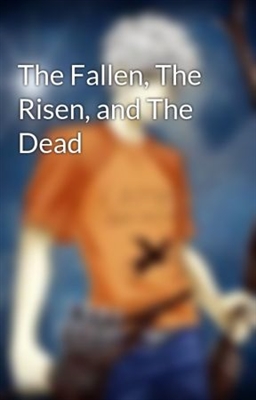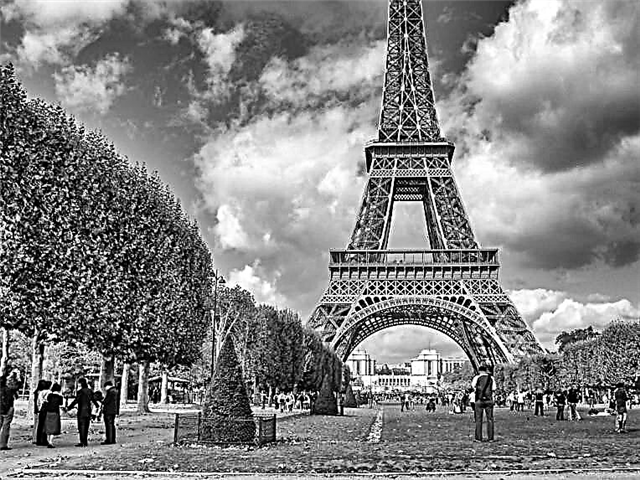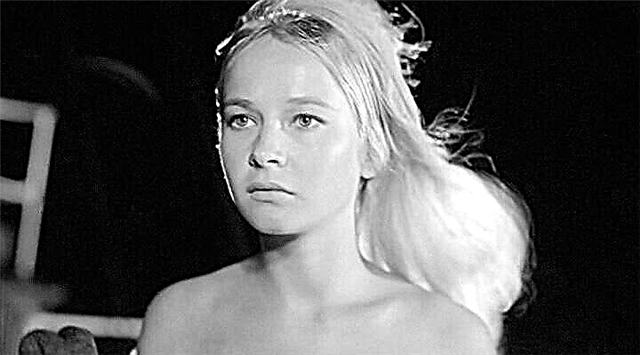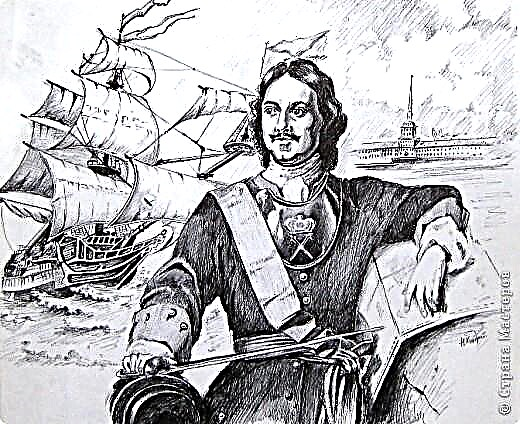A special place in the work of Chekhov-humorist is occupied by a miniature joke story and a domestic scene entirely built on dialogue. They are still popular because the everyday life and customs of an entire era are revealed behind dialogues full of comic. The basis of a number of humorists is the principle of mutual misunderstanding of the participants in the conversation, each of whom insists. This is exactly the case in the story “Attacker”.
History of creation
On August 7, 1885, in the Petersburg newspaper under the pseudonym Antos Chekhonte, the Intruder was published, which was subsequently included in the first collection of the writer's Colorful Stories.
Vladimir Gilyarovsky believed that the prototype of the protagonist is the peasant Nikita Pantyukhin from the village of Kraskovo, Moscow province. Although the writer reacted negatively to the question of prototypes of his heroes, since for the most part his characters are generalized images.
Genre, direction
The life of ordinary people in Russia, their feelings and aspirations have always interested Anton Pavlovich. He is a follower of the best traditions of the realistic trend in literature. His prose style is satirical, where there are "funny" situations and scenes, ridiculous forms of behavior and speech.
The work was subtitled "Scene". By genre, this is a humorous story in which the author laughs at his heroes delicately, with irony and compassion.
Humor is associated with a vivid vocabulary surprise, an illiterate, illogical speech of the character, as well as an absurd situation when the investigator believes that he is an attacker demanding punishment, and the “person under investigation” does not understand the tragedy of his own situation.
“Funny” and “sad” in the story are closely intertwined.
Plot
The focus is on the dialogue between the judicial investigator and the dull “peasant”, this is the essence of the story.
A skinny man unscrews the nut on the railway track in the morning. For this "work" he was caught by a lineman Ivan Akinfov and forwarded to a judicial investigator. Interrogation begins with the aim of clarifying the circumstances of the theft and proving Grigoryev’s guilt.
A man admits that what happened (the abduction of a nut) is commonplace for Klimovsky peasants, since their main business is related to fishing. And they make sinkers out of nuts.
On the accusation that unscrewing the nuts could lead to the train crash, Denis, with a grin, objects: “If the rail had been taken away ... or else ... a nut!”.
The result of the investigative dialogue is the detention of the “intruder” and his imprisonment.
The main characters and their characteristics
- Denis Grigoriev. Description and description of the attacker: a skinny peasant, overgrown with hair. Thick eyebrows hang over the eyes, creating the impression of constant gloom. A cap of unkempt hair is somewhat reminiscent of a spider web. Denis's appearance speaks, most likely, of his untidiness, rather than poverty. Grigoriev’s portrait is a testament to the character’s “confused” life, which he himself cannot understand. Well versed in the "fishing business". He knows the features of fishing for different species of fish. He is practical, as he sensibly explains why lead, bullet or carnation cannot be used as a sinker. With indignation, he rejects the accusation that unscrewing the nuts could lead to death of people ("something we are villains"). Honesty is an important trait of his character. When the investigator directly tells him that Denis is lying, he is sincerely surprised at this, since he "didn’t lie." He thoroughly talks about the existence of nuts and nuts among him. In particular, Mitrofan Petrov needs a lot of nuts, from which he makes a net, and then sells to the masters.
- Investigator - representative of the law. The author does not endow him with a portrait characteristic, or with his characteristic traits of character. The absence of a name suggests that this is a collective image of the social layer of bureaucracy.
Themes and Issues
- People's problem decided by the writer in his own way. He lives in a transitional time in Russia, among people belittled and deprived of fate. He does not remain aloof from the "peasant" theme. Truly reveals the contradictions of village life. With no other income, the village peasants fish to feed themselves. And for this we need nuts that can only be unscrewed from the railway tracks. And the man is at a crossroads: a forced state forces him to commit a “crime” (although he himself does not think so), which then inevitably follows “punishment”.
- In this regard, arises equity issueliability before the law. An attacker is a person who deliberately conceived evil and is therefore obligated to stand before the law. But men found themselves in difficult social conditions are not. They are Christians. “Evil” and “crime” are alien concepts for them.
- The problem of power, violence runs through the whole story with a red thread. For the fact that everyone is doing, one will receive hard labor, and only because the lazy official accidentally noticed him. Alas, no supervision of the roads is carried out, so the people do not even know what can be done and what cannot. To them, illiterate and uneducated, no one explained the meaning of the laws.
- The problem of mutual misunderstanding. So, the investigator, recalling the train crash last year, talks about his "understanding" of what happened, linking the tragedy with the abduction of nuts. Denis perceives this situation in his own way, treating the “understanding” of the investigator as a feature peculiar only to educated people. In his opinion, the “peasant mind” perceives what is happening differently and is not capable of inference. Grigoriev is told that he can be sentenced to “exile in hard labor”, to which Denis replies: “You know better ... We are dark people ...”. When they announce that the consequence of his "acts" is now being sent to prison, he is surprised to object that there is no time now, since it is necessary to go to the fair.
- Subject of negligence, unfair attitude to state property not accidentally affected. Rich gentlemen acquire nets to satisfy their personal needs, and absolutely do not think about where men get their nuts. Gentlemen who buy gear are absolutely not concerned about the condition of the railway, about the train crash, that they may end up in one of them themselves. This is some typically Russian irresponsibility that has been accumulating for centuries among the Russian people.
The problems of the story are rich and complex, the more surprising is the fact that the author put it in such a laconic form.
The main idea
Avaricious details recreate the picture of village everyday life, behind which the features of Russian reality are revealed. And in this mosaic, consisting of many "episodes", hidden evil triumphs, and the meaning of the story is to show and prove it. All content is imbued with deep drama. Before the reader, an unhappy man driven by circumstances appears before pain. He is a savage, but pity for him, for simple peasants, for the fact that a person who is essentially innocent of what is happening in the evil can suffer, “overwhelms” the reader.
In a revealing scene, a line of protest against the lies that prevails in Russia is presented, where unenlightened people eke out a miserable existence, and not seeing a person’s power is covered by laws that contradict a humane attitude to people. This is the main idea of the work. The story evokes a feeling of bitterness and regret.
What does it teach?
Chekhov educates in his reader independence, will and mind. Most of all, he is concerned about the internal weakness of the human spirit. He says: "It is better to die from fools than to accept praise from them." The main measure of action should be conscience. Everything must be done in good conscience: "Though they are carving, but for the cause." Here is the moral of the work.
The writer wanted gaiety to become the life style of everyone, because it is it that is the condition and a sure sign of the spiritual health of the nation.
The true intruders are those “masters of life” who do not care about public order, but only satisfy their whims and desires.
What makes fun of the author?
Chekhov was convinced that only laughter could resist slavish behavior in front of “those in power”. The writer makes fun of the darkness, ignorance of a people who are not free even in their own feelings.
Comicism is created by the equanimity and peculiar judiciousness of the answers of the “intruder”, who is not able to understand what they want from him and why he is here. The position of the investigator, driven to frenzy by the impassable stupidity of a peasant, is comical.
Chekhov’s humor always “keeps up” with sadness, which is born out of the fact that a person cannot stand up for himself, maintain a sense of dignity.
Laughter is an occasion to pay attention, first of all, to your shortcomings and to "squeeze a slave out of you drop by drop."


